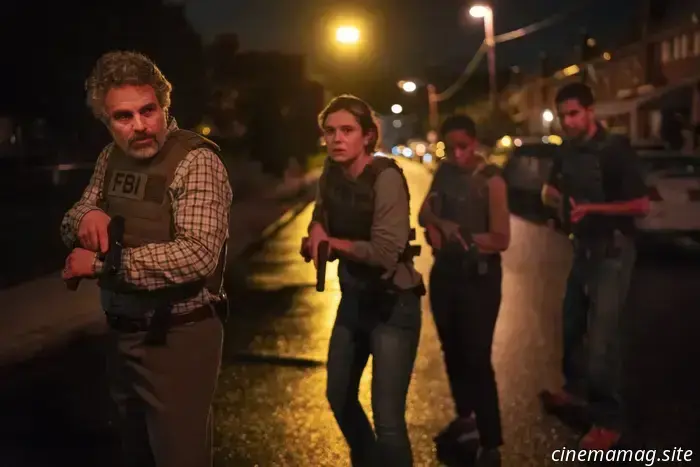
Exclusive Interview – Composer Dan Deacon Discusses Scoring HBO’s Task
Chris Connor converses with Task composer Dan Deacon…
HBO’s Task has garnered high praise in recent months, meeting the significant expectations set after Brad Inglesby’s critically acclaimed Mare of Easttown. We spoke with Dan Deacon, the composer for the show, about the differences between Task and some of the prior films and series he has scored. Dan shared insights on what it was like to work on his first HBO series, navigating the FBI investigation, criminal elements, and the combination of rural and Philadelphia settings.
When did you first become involved with Task, and what were your initial steps?
Joining the team was a lengthy process. This project holds great importance for HBO, and it's the first series of this scale that I’ve done for them. I had previously collaborated with [executive producer] Jeremiah Zagar on Hustle and Monster Factory, as well as some commercial projects, so we had established a solid relationship. He mentioned, “Hey, I’m involved in this project with Brad Inglesby. If you enjoyed Mare [which I had and loved], you should meet Brad. I think it could be a great fit.” Coincidentally, I had a ballet staged in Philadelphia at that time, and both Jeremiah and Brad were in the city. They attended the ballet, which aligned with the series' vision, having a substantial influence from Steve Reich, Philip Glass, and a minimalist approach.
We met backstage during the after-party and geeked out over various topics, bonding over our shared interests in minimalism. We stayed connected, and Brad helped me navigate the process with HBO. Conversations about music flowed naturally, much like a kid asking, “Do you like this?” That sense of camaraderie is crucial in any collaboration; a strong friendship and connection are essential because you'll be working closely together for a significant period, akin to living with a roommate. I've had experiences with collaboration where it didn't resonate, but this felt right from the start. I sensed that I could comfortably work with them based on their feedback, encouragement, and critique, all coming from a genuinely collaborative space.
I officially came on board in January of 2024. I received the scripts and began crafting demos inspired by them, observing the various family dynamics at play. The task force represents a family, alongside Tom’s family, Robbie’s family, and the Dark Hearts, with their roles intersecting and overlapping. The show portrays that family relationships are not always idyllic, reflecting reality accurately. My initial approach was to read the scripts as inspiration for standalone music, rather than pinpointing specific themes for characters. I treated the scripts as a source of inspiration, allowing some ideas to take shape while discarding others, leading to a better understanding of what the show’s sound should be.
A significant turning point in defining our sound happened when I visited Philadelphia, where they were filming a scene at the FBI headquarters in episode one. They mentioned needing something with drums that had a busy, Dan Deacon style. I quickly put something together, and between takes, we gathered in the least moldy room, as the office, while visually appealing, was situated in a building that hadn’t been used for a long time. We found a suitable space with a headphone splitter to exchange notes, marking our first bespoke cue. This was unique in the show, and we wanted to inject joy into that moment.
During lunch, I had sent Brad about a dozen demos already, and he had opened all of them in separate tabs in his browser, essentially DJing them via Dropbox links. He expressed a strong affinity for the bowed vibes paired with the alto flute. This level of engagement with the showrunner early in the process was unprecedented for me, discussing options that might work for different themes. We derived a lot of material from that session, showcasing Brad's thorough and invested approach, which deepened my respect for his commitment. We worked from a track that initially contained about 64 stems, heavily featuring piano and harp, ultimately simplifying it to just the alto flute and bowed vibes in the show due to that session. To me, that marked the beginning of the show’s sound.
Considering the need to follow both the FBI and the crew, how did you manage to balance those sounds?
We aimed to maintain a modular sound since there’s considerable overlap between the groups. Even if they might not meet directly, there's an internal dialogue among characters, particularly with Maeve, who serves as a vital connective figure. Her point of view allows themes to resonate with the audience. I'm conscious of not giving away too much, but I’d describe it as ensuring elements could be layered and arranged effectively.
I often rely on timbre as a motif rather than melody, ensuring that the timbre aligns well since we wanted to avoid overly busy melodies. While melodies are important, my primary tools are electronics and computers, so prioritizing timbre and texture was crucial. We aimed for unique sounds that clearly defined different groups, like the crew, Dark






Other articles
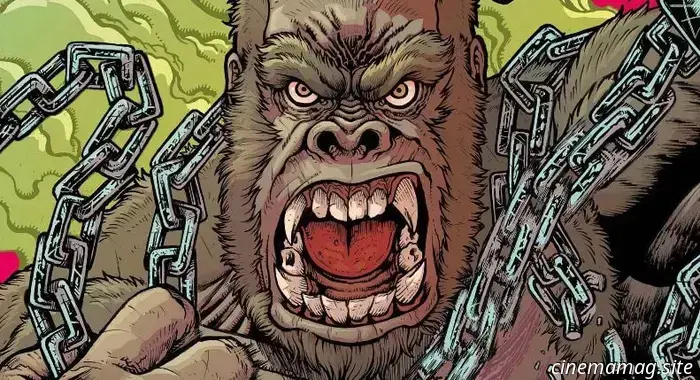 Titan Comics and Legendary have announced a new MonsterVerse series titled Escape from Skull Island.
Titan Comics and Legendary Entertainment have revealed that the MonsterVerse will further develop with the introduction of Escape from Skull Island, the official in-canon continuation of Netflix’s…
Titan Comics and Legendary have announced a new MonsterVerse series titled Escape from Skull Island.
Titan Comics and Legendary Entertainment have revealed that the MonsterVerse will further develop with the introduction of Escape from Skull Island, the official in-canon continuation of Netflix’s…
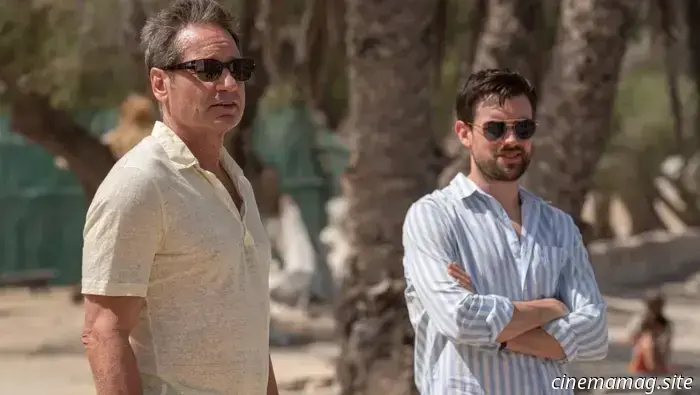 Dreams, 2025.
Written and directed by Michel Franco.
Featuring Jessica Chastain, Isaac Hernández, Rupert Friend, Marshall Bell, Eligio Meléndez, and Mercedes Hernández.
SYNOPSIS:
A romance develops between a wealthy socialite and a Mexican ballet dancer, merging their differing lives and cultures. Following the outstanding Memory from 2023, Mexican writer-director Michel Franco's second project with Jessica Chastain takes on a more cynical tone, highlighting the selfish ambitions of the affluent elite and the hypocritical liberalism they often disguise themselves with.
Chastain portrays Jennifer, a rich philanthropist based in San Francisco, who dedicates her time and resources to supporting her family’s arts foundation, including a ballet school in Mexico City. She embarks on a relationship with talented dancer Fernando (Isaac Hernández), a connection she discreetly conceals from her brother Jake (Rupert Friend) and, more critically, her father Michael (Marshall Bell), the provider of her wealth and privileged lifestyle.
Dreams begins powerfully, with screams echoing from a truck loaded with migrants crossing the border, as we see Fernando make his way to San Francisco with just the clothes on his back. He arrives at Jennifer's home, enters, and they immediately engage in a passionate encounter. While this makes for a compelling start, the film struggles to maintain momentum thereafter.
Fernando expects an open relationship in the US, while it becomes evident that Jennifer prefers he remain in Mexico. She is acutely aware of how such a relationship could impact her public persona and is more interested in Fernando as a handsome secret to visit in Mexico for her own desires. His presence in San Francisco disrupts her control over the situation as she attempts to balance her sexual cravings with the necessity of guarding her image.
The film's straightforward narrative tackles numerous pressing societal issues, particularly concerning US-Mexican relations, immigration, and border security. It raises the question of whether Fernando's journey across the border is worth it; does a better life in the US truly exist? Is the notion of the American Dream as appealing as it seems?
The narrative delves into class conflict, contentious age gaps in relationships, and shifting power dynamics, with both Jennifer and Fernando experiencing varying degrees of dominance, each capable of cruelty when provoked. However, it tries to cover too much ground, lacking a cohesive and meaningful outcome.
Partly, this is due to Dreams being as subtle as a sledgehammer; its themes lack nuance, and its political commentary is oversimplified. Additionally, the premise feels overly familiar, as this isn't the first story depicting a wealthy woman falling for a poorer man against her family's wishes.
Franco’s signature reserved and authentic style, which lacks cinematic flourishes and original score, does not benefit the film in this case. It comes across as cold and detached. Furthermore, both Jennifer and Fernando are unlikable characters, making it hard for viewers to connect with them, and the lack of chemistry between Chastain and newcomer Hernández (who both deliver strong performances individually) exacerbates the issue. The explicit sex scenes feel excessive and awkward, failing to add any emotional depth to the film’s portrayal of its subjects.
In its concluding 15 minutes, the film really begins to unravel. Following a surprisingly shocking plot twist, it takes an abrupt turn that might leave audiences disoriented; a plot device meant to provoke shock, but it doesn't integrate with the film's themes as smoothly as Franco intends. The controversial ending may find some supporters, but it will likely leave many viewers confused.
Dreams does have its strengths. Chastain is outstanding as ever, Hernández shows promise as a significant talent, Rupert Friend stands out as Jake, and the opening sequence is genuinely engaging. However, overall, the film feels cold and devoid of emotion, mirroring its characters, and it falls short of being as clever and insightful as it perceives itself to be.
Flickering Myth Rating - Film: ★ ★ / Movie: ★
Dan Barnes
Prime Video has released a trailer for the forthcoming thriller series Malice. Jack Whitehall plays Adam, a tutor who skillfully ingratiates himself into the home of the affluent Tanner family during a vacation...
Dreams, 2025.
Written and directed by Michel Franco.
Featuring Jessica Chastain, Isaac Hernández, Rupert Friend, Marshall Bell, Eligio Meléndez, and Mercedes Hernández.
SYNOPSIS:
A romance develops between a wealthy socialite and a Mexican ballet dancer, merging their differing lives and cultures. Following the outstanding Memory from 2023, Mexican writer-director Michel Franco's second project with Jessica Chastain takes on a more cynical tone, highlighting the selfish ambitions of the affluent elite and the hypocritical liberalism they often disguise themselves with.
Chastain portrays Jennifer, a rich philanthropist based in San Francisco, who dedicates her time and resources to supporting her family’s arts foundation, including a ballet school in Mexico City. She embarks on a relationship with talented dancer Fernando (Isaac Hernández), a connection she discreetly conceals from her brother Jake (Rupert Friend) and, more critically, her father Michael (Marshall Bell), the provider of her wealth and privileged lifestyle.
Dreams begins powerfully, with screams echoing from a truck loaded with migrants crossing the border, as we see Fernando make his way to San Francisco with just the clothes on his back. He arrives at Jennifer's home, enters, and they immediately engage in a passionate encounter. While this makes for a compelling start, the film struggles to maintain momentum thereafter.
Fernando expects an open relationship in the US, while it becomes evident that Jennifer prefers he remain in Mexico. She is acutely aware of how such a relationship could impact her public persona and is more interested in Fernando as a handsome secret to visit in Mexico for her own desires. His presence in San Francisco disrupts her control over the situation as she attempts to balance her sexual cravings with the necessity of guarding her image.
The film's straightforward narrative tackles numerous pressing societal issues, particularly concerning US-Mexican relations, immigration, and border security. It raises the question of whether Fernando's journey across the border is worth it; does a better life in the US truly exist? Is the notion of the American Dream as appealing as it seems?
The narrative delves into class conflict, contentious age gaps in relationships, and shifting power dynamics, with both Jennifer and Fernando experiencing varying degrees of dominance, each capable of cruelty when provoked. However, it tries to cover too much ground, lacking a cohesive and meaningful outcome.
Partly, this is due to Dreams being as subtle as a sledgehammer; its themes lack nuance, and its political commentary is oversimplified. Additionally, the premise feels overly familiar, as this isn't the first story depicting a wealthy woman falling for a poorer man against her family's wishes.
Franco’s signature reserved and authentic style, which lacks cinematic flourishes and original score, does not benefit the film in this case. It comes across as cold and detached. Furthermore, both Jennifer and Fernando are unlikable characters, making it hard for viewers to connect with them, and the lack of chemistry between Chastain and newcomer Hernández (who both deliver strong performances individually) exacerbates the issue. The explicit sex scenes feel excessive and awkward, failing to add any emotional depth to the film’s portrayal of its subjects.
In its concluding 15 minutes, the film really begins to unravel. Following a surprisingly shocking plot twist, it takes an abrupt turn that might leave audiences disoriented; a plot device meant to provoke shock, but it doesn't integrate with the film's themes as smoothly as Franco intends. The controversial ending may find some supporters, but it will likely leave many viewers confused.
Dreams does have its strengths. Chastain is outstanding as ever, Hernández shows promise as a significant talent, Rupert Friend stands out as Jake, and the opening sequence is genuinely engaging. However, overall, the film feels cold and devoid of emotion, mirroring its characters, and it falls short of being as clever and insightful as it perceives itself to be.
Flickering Myth Rating - Film: ★ ★ / Movie: ★
Dan Barnes
Prime Video has released a trailer for the forthcoming thriller series Malice. Jack Whitehall plays Adam, a tutor who skillfully ingratiates himself into the home of the affluent Tanner family during a vacation...
.jpg) Film Review – Regretting You (2025)
Regretting You, 2025. Directed by Josh Boone, featuring McKenna Grace, Mason Thames, Alison Williams, Dave Franco, Scott Eastwood, Willa Fitzgerald, and Clancy Brown. SYNOPSIS: Focuses on...
Film Review – Regretting You (2025)
Regretting You, 2025. Directed by Josh Boone, featuring McKenna Grace, Mason Thames, Alison Williams, Dave Franco, Scott Eastwood, Willa Fitzgerald, and Clancy Brown. SYNOPSIS: Focuses on...
.jpg) Film Review – Dreams (2025)
Dreams, 2025. Written and directed by Michel Franco, featuring Jessica Chastain, Isaac Hernández, Rupert Friend, Marshall Bell, Eligio Meléndez, and Mercedes Hernández. SYNOPSIS: A romance develops between…
Film Review – Dreams (2025)
Dreams, 2025. Written and directed by Michel Franco, featuring Jessica Chastain, Isaac Hernández, Rupert Friend, Marshall Bell, Eligio Meléndez, and Mercedes Hernández. SYNOPSIS: A romance develops between…
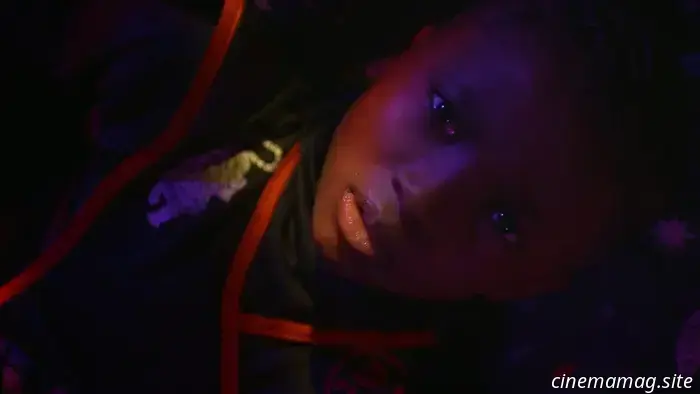 In "The Ohio, Texas Remix," Ya'Ke Smith reflects on a custody battle from his childhood.
Ya'ke Smith's short film "The Ohio, Texas Remix" is inspired by a tumultuous period in his youth, during which his parents fought for custody over him and his sister.
In "The Ohio, Texas Remix," Ya'Ke Smith reflects on a custody battle from his childhood.
Ya'ke Smith's short film "The Ohio, Texas Remix" is inspired by a tumultuous period in his youth, during which his parents fought for custody over him and his sister.
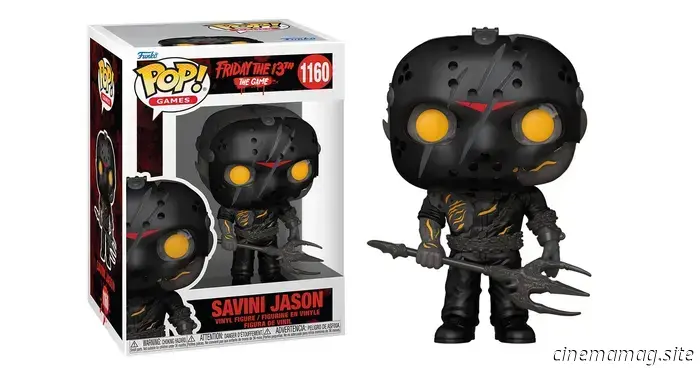 Funko gives Savini Jason from Friday the 13th: The Game the Pop! treatment.
Funko has revealed that it is broadening its range of Friday the 13th Pop! Vinyl figures by introducing a Savini Jason Pop!, which is influenced by the Tom Savini-designed appearance of the legendary masked murderer Jason Voorhees.
Funko gives Savini Jason from Friday the 13th: The Game the Pop! treatment.
Funko has revealed that it is broadening its range of Friday the 13th Pop! Vinyl figures by introducing a Savini Jason Pop!, which is influenced by the Tom Savini-designed appearance of the legendary masked murderer Jason Voorhees.
Exclusive Interview – Composer Dan Deacon Discusses Scoring HBO’s Task
Chris Connor speaks with Task composer Dan Deacon… HBO's Task has received some of the best reviews in recent months, meeting the high expectations set after Brad Inglesby's widespread acclaim…
